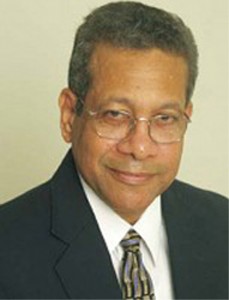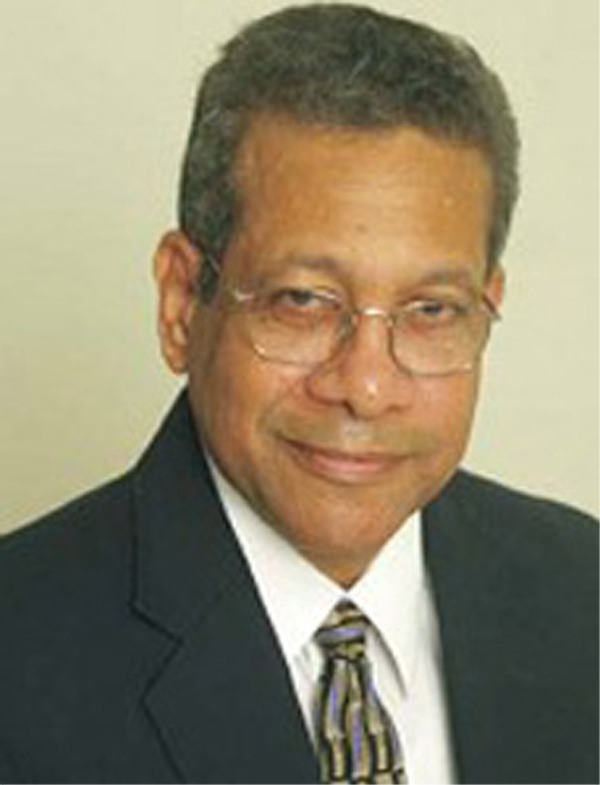-at CARICOM ministers meet
Ministers in CARICOM with responsibility for foreign relations recently expressed concern at the growing incidence of armed robbery in the Caribbean Sea and discussed a number of measures for a joint position on the issues, including most importantly the sharing and exchange of information.

Meeting at the Twelfth Meeting of the Council for Foreign and Community Relations (COFCOR) in Kingston, Jamaica from May 8-9, they also expressed their concern at the growing and grave phenomenon of piracy affecting the international community, including those Caribbean countries that are flag states.
According to a communiqué issued at the meeting and released by the CARICOM Secretariat, the COFCOR endorsed the candidature of Guyanese Justice Duke Pollard to the International Criminal Court (ICC) and that of Ambassador Albert Ramdin of Suriname for re-election as Assistant Secretary-General to the Organisation of American States (OAS).
The COFCOR also endorsed the offer made by Barbados to host the Adaptation Fund Board (AFB) to the Kyoto Protocol of the UN Framework Convention on Climate Change. The ministers considered too that given the objectives of the AFB, it should be hosted in a region such as the Caribbean which is particularly vulnerable to the adverse impact of climate change.
The communiqué said further that the ministers agreed that the region would support the candidature of Canada for a non-permanent seat on the UN Security Council for the period 2011-2012.
Meanwhile, Secretary General Edwin Carrington at the opening ceremony emphasized the critical need for foreign policy coordination within the community at a juncture when it is forced to grapple with a rapidly changing international environment.
The Secretary-General also entreated the COFCOR in determining its relationships and adopting positions to strive to arrive at collective positions which advance and protect the interests of the community. And he cautioned against the danger of marginalisation of the community’s interests in the global arena while pointing to the need to ensure that in a world of shifting balance of political and economic power, CARICOM’S voice continues to be heard as it seeks to provide a viable, secure and sustainable community.
The meeting was held under the chairmanship of Dr. Kenneth Baugh, Deputy Prime Minister and Minister of Foreign Affairs and Foreign Trade of Jamaica and Guyana was represented by Minister of Foreign Affairs Carolyn Rodrigues-Birkett.
The other ministers attending were Winston Baldwin Spencer, Prime Minister and Minister of Foreign Affairs of Antigua and Barbuda; Brent Symonette, Deputy Prime Minister and Minister of Foreign Affairs of The Bahamas; Senator Maxine McClean, Minister of Foreign Affairs and Foreign Trade, Barbados; Vince Henderson, Minister of Foreign Affairs of Dominica; Peter David, Minister of Foreign Affairs and Tourism, Grenada; Alrich Nicolas, Minister of Foreign Affairs, Haiti; Rufus Bousquet, Minister of External Affairs, International Trade and Investment, Saint Lucia; Lygia L.I. Kraag-Keteldijk, Minister of Foreign Affairs, Suriname; and Paula Gopee-Scoon, Minister of Foreign Affairs, Trinidad and Tobago.
Meanwhile, Alexis Rosado, Chief Executive Officer, Ministry of Foreign Affairs and Foreign Trade, represented Belize; Astona Browne, Permanent Secretary in the Ministry of Foreign Affairs represented St. Kitts and Nevis; and Camillo Gonsalves, Permanent Representative to the United Nations represented St. Vincent and the Grenadines.
Prime Minister of Jamaica Bruce Golding highlighted the strengths and assets of the community, noting that over the years CARICOM had forged a strong and impressive tradition of foreign policy, commanding significant attention and respect in the international arena. He contended that it was these assets that would have to be brought to the fore in the context of the extensive, pervasive crisis currently gripping the world.
And with respect to the CARIFORUM-EC EPA, the Prime Minister urged the region to be bold and to embrace the opportunities offered by the new partnership with Europe. He further urged the region to recognise that similar opportunities may be secured under the proposed trade and development agreement with Canada.
Turning to Cuba, Prime Minister Golding referred to the window of opportunity for ending the Cuban government’s exclusion from the Inter-American system, stressing that the normalization of relations with Cuba should be treated not as a deed but as a process which must be handled very carefully, and which must place the interests of the people of Cuba above everything else.
Golding urged CARICOM not to be daunted by the existing and the emerging challenges of the global arena, but instead to grab the opportunities presented, and draw collectively on the strength which must come from within.
He noted the recent discussions with US President Barack Obama held within the margins of the Fifth Summit of the Americas in Trinidad and Tobago in April and welcomed the willingness shown by the US President to engage anew with the Caribbean. He emphasized the role which CARICOM needs to play in shaping and defining this new engagement.
Guyana-Venezuela
The ministers recalled the decision of Heads of Government of CARICOM to affirm their unequivocal support for the safeguarding of Guyana’s territorial integrity and sovereignty and its right to develop its resources in the entirety of its territory. They also expressed satisfaction with the efforts made by Guyana and Venezuela to maintain good relations and reiterated their full support for the maintenance of the sovereignty and territorial integrity of Guyana.
They noted that the issue was still before the United Nations and both countries were making efforts to identify a new special Representative of the United Nations Secretary-General to advance the Good Offices Process.
Meanwhile, the ministers received a report on the status of relations between Belize and Guatemala and expressed their satisfaction on the successful negotiation and signing of the Special Agreement by both governments to refer the territorial dispute to the International Court of Justice for final settlement, subject to the approval of their citizens in national referenda.
In this context, the ministers called on the international community, particularly the “Group of Friends” to support and assist the process both politically and financially. The ministers emphasized the need to continue funding the operations of the Office of the Organisation of American States located on the Adjacency Zone that has successfully supported the efforts of both governments in maintaining peace and security and in reducing tensions along the border communities in both countries. They also reaffirmed their unequivocal support for the territorial integrity and sovereignty of Belize.
CARICOM-Canada relations
According to the communiqué, the ministers welcomed the positive statements made by Canadian Prime Minister Stephen Harper on issues relating to CARICOM-Canada relations during the CARICOM-Canada Bilateral Meeting held in the margins of the Fifth Summit of the Americas in April. The ministers were particularly encouraged by the Prime Minister’s reiteration of the great importance attached by Canada to the conclusion of a trade and development agreement and underlined that the development component of this agreement was of critical importance to the region.
They also noted the supportive role of the Canadian Government in articulating in international fora such as the G20, the concerns of the community regarding the global economic and financial crisis and the need for restructuring of international financial institutions.
The ministers identified a number of issues for further discussion with the Canadian Prime Minister at the Canada-CARICOM Summit which is expected to be convened in the last quarter this year. These issues include security, climate change, the trade and development agreement and the joint programming of the Cdn$600m in development assistance to the region.
Outgoing Chairman of the COFCOR, Baldwin Spencer, Prime Minister and Minister of Foreign Affairs of Antigua and Barbuda commended the COFCOR for the progress made in strengthening foreign policy coordination and in interfacing with third states.
He noted that these efforts were even more important in the context of the pressing global concerns, including the financial and economic crisis, security threats and energy security among others. He urged the COFCOR to develop a political and economically integrated approach to the community’s social development.
In the meantime, Chairman of the COFCOR, Dr Baugh, Minister of Foreign Affairs and Foreign Trade of Jamaica underscored COFCOR’s crucial responsibility to ensure the effective, strategic and well-devised coordination of the community’s foreign policy at a critical junction in its life.
The addition of new challenges resulting from the global economic crisis added to the old ones are threatening the advances made by the community and have the potential to increase its vulnerability.
However, these challenges were not insurmountable if the community’s responses were coordinated and strategic. He viewed the meeting of the COFCOR as timely, coming as it did on the heels of major meetings such as the successful Fifth Summit of the Americas which had raised the profile of the community, and the G20 meeting on the economic and financial crisis.
Underlining the importance of the community’s engagement with Latin America, he also urged his fellow ministers to monitor closely the developments in the global arena, and to take the required actions to protect the region’s interests. In this regard Baugh highlighted the coordination function of a revitalised COFCOR Bureau.
As part of their two-day deliberations, the ministers received US Assistant Secretary of State for the Western Hemisphere, US Department of State, Thomas Shannon who affirmed the interest of the US in collaborating with CARICOM on a number of matters including hemispheric relations, trade and investment, security, particularly concerning the illicit trafficking of drugs and of small arms and the implementation of a mechanism to enhance CARICOM-US Dialogue.
In this regard, both sides looked forward to discussions between CARICOM Foreign Ministers and the US Secretary of State during the OAS General Assembly. They also reaffirmed their commitment to the convening of a Summit between CARICOM Heads of State and Government and the US President in the latter half of 2009.
The ministers recognized the emerging challenges and the negative effects posed by the global financial and economic crisis and COFCOR agreed to monitor the situation, given its implications on economic and social development of member states, the communiqué stated.
The ministers also underscored their intention to advance vigorously the region’s position on the issue in the relevant international fora. In that light, the COFCOR agreed that CARICOM states should be represented at the highest possible level at the United Nations Conference on World Financial and Economic Crisis and its Impact on Development scheduled to take place in New York, from June 1-3 at the United Nations Headquarters.
In the meantime, a caucus of the Heads of State and Government of CARICOM to discuss the impact of and response to the crisis has been convened by Prime Minister of Trinidad and Tobago Patrick Manning for May 24 in Port-of-Spain.

